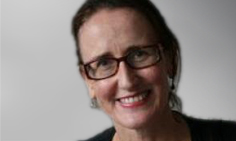IMAGINE you head a multinational pharmaceutical company and you have a potentially lucrative drug ready to go to market.
Only problem is it’s extremely expensive and, although research demonstrates some benefits over existing treatments, these may not be substantial enough to convince health authorities the drug deserves the hefty subsidy needed to make it generally available.
So what do you do? Lobbying government might seem the obvious strategy and, sure, it might be one avenue.
But far more effective is harnessing patient power, getting individual patients and the charities that speak for them to campaign on your behalf.
When tearful patients appear on television, when their children write heart-rending letters pleading for their mummy’s life, it’s a brave politician who’ll stand against the tide.
What’s often not clear when such campaigns take wing in traditional media and online is the commercial interests that may lie behind them.
Apparently spontaneous uprisings led by patient groups may in fact be orchestrated behind the scenes by public relations firms who have been hired by industry to find the “talent” that will become the public face of the campaign.
An article published in the BMJ last week asks whether patient groups and charities should be required to disclose the funding they receive from industry, given that they are often powerful advocates for its products.
“Nearly all such groups receive funding from drug companies”, the authors write. “… there is growing concern that charities, like any other sector, should be more transparent about their funding given that they are widely perceived by patients, the public, and policy makers to be independent.”
Perhaps the most striking example of a successful, apparently patient-led campaign for public funding of a pharmaceutical was the one surrounding breast cancer drug Herceptin (trastuzumab) back in 2006.
Protests led by patient advocacy groups around the world (including women marching on Downing Street in the UK) led initially reluctant health authorities to approve subsidies of the expensive drug, as this article from The Guardian at the time makes clear.
In Australia, the campaign culminated in the government subsidising Herceptin outside normal approval mechanisms, as described in a 2006 editorial in Australian Prescriber.
The Pharmaceutical Benefits Advisory Committee had advised against public subsidy of the drug on cost-effectiveness grounds, but official recommendations do not necessarily hold sway when, as the editorial put it, “vested interests can encourage an expectation that treatment should be subsidised irrespective of cost”.
The success of campaigns such as this would “inevitably fuel future lobbying efforts for other expensive drugs”, the editorial said, an outcome that “will no doubt benefit some individual patients, but may not represent best value for society”.
The Herceptin case is one of several set out by Scottish GP Margaret McCartney in her 2012 book, The patient paradox: why sexed up medicine is bad for your health.
She also describes the apparent patient backlash to a 2010 proposal to allow UK pharmacists to substitute cheaper generics for branded pharmaceuticals.
A group of charities, including the British Liver Trust, the Cure Parkinson’s Trust and the British Cardiac Patients’ Association, wrote a letter of protest to The Times, calling on the UK health department to respect the judgement of prescribers.
The letter, however, turned out to have been instigated by a global public relations firm acting for pharmaceutical company Norgine, as part of a campaign against the generics move.
Norgine itself did not sign the letter because, as its chief operating officer told Dr McCartney, “having a pharmaceutical company in there would sully the message”.
And there’s the rub. If there’s no problem with industry supporting such campaigns, then there should be no problem with them being open about it.
Patient groups and charities advocate for patients, and often that will mean arguing for particular treatments to be made available. That’s their role.
But charities need to ensure they are not being manipulated for commercial ends. And that means full disclosure of their relationships with industry —particularly of any funding they receive.
Jane McCredie is a Sydney-based science and medicine writer.

 more_vert
more_vert